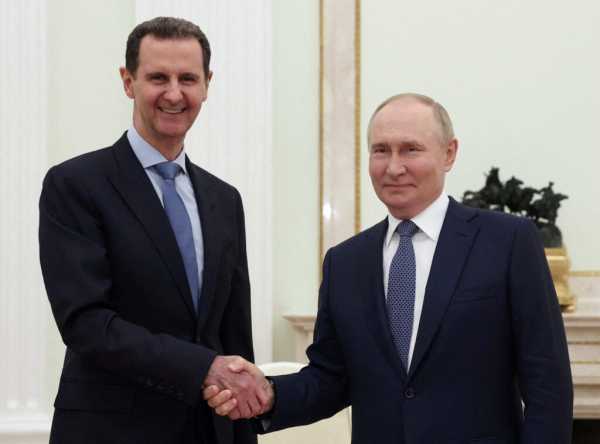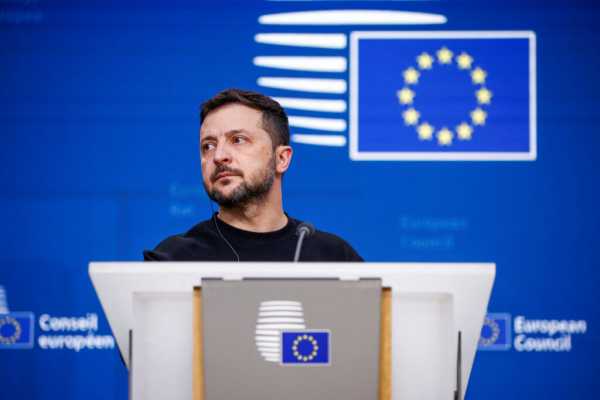
As the new US administration seeks to transform the country’s foreign policy, one of President Trump’s top priorities is a peace deal that ends Russia’s war in Ukraine. But there is a very real danger that the US leader’s desire to strike a deal with Vladimir Putin could lead to a flawed settlement that undermines the foundations of international security for years to come.
Trump seeks to secure peace in Ukraine as part of a broader shift that includes reducing U.S. commitments to Europe and a strategic pivot to Asia. This goal is actually very much in line with long-standing U.S. foreign policy. But with Putin’s Russia now an openly expansionist power and European countries dangerously weakened by decades of defense complacency, this is not the ideal time to withdraw U.S. troops.
In the current climate of growing international instability, maximum Western unity is needed to avoid a slide into a geopolitical jungle and the emergence of a new Kremlin-created security environment in which the rule of law is replaced by brute force. It is therefore in the US interest to preserve Ukraine’s military power as a bulwark against Russia while Europe rearms.
Putin has repeatedly made it clear that he views Ukraine’s complete subjugation as merely the first step toward restoring Russian hegemony in the wider region. He has put his entire country on a war footing, openly proclaimed the return of “historically Russian lands,” and declared his intention to establish a new multipolar world order. If Putin is allowed to succeed in Ukraine, his position will be far stronger and Europe more vulnerable than ever. There will then be little to stop him from achieving his larger goals.
Trump’s apparent rush to exit Ukraine now emboldens the Russian dictator to pursue his most maximalist military goals. These include the outright annexation of five Ukrainian regions representing about twenty percent of the country, and the international isolation of the remaining Ukrainian state, which would remain neutral, disarmed, and defenseless. Under these circumstances, it will only be a matter of time before Putin completes his conquest.
The destruction of Ukraine would set a catastrophic precedent that would undo decades of progress in international relations and mark a return to nineteenth-century diplomatic patterns of empire, invasion, and annexation. Putin himself would be emboldened to acquire more “historically Russian lands,” while his fellow autocrats in Beijing, Tehran, and beyond would draw the obvious conclusion and follow suit. Failure to confront one aggressive dictatorship would breed many more.
Some in Washington believe that by appeasing Putin in Ukraine, they can persuade Russia to ally with the United States against China. This is dangerously naive and ignores the strength of the current strategic partnership between Moscow and Beijing. China played a major supporting role in the invasion of Ukraine and sees the current war as an opportunity to undermine the West. As long as Russia can deliver geopolitical success, cooperation between the two countries will continue to deepen.
By contrast, a Russian defeat in Ukraine would alarm Moscow and Beijing, forcing both countries to rethink the nature of their partnership. Many Russian leaders, in particular, would become increasingly concerned about their growing dependence on China. Given this, American officials would probably be wise to maintain or even increase their support for Ukraine if they are serious about creating long-term conditions for closer cooperation with Russia in the coming confrontation with China.
Perhaps the most serious and far-reaching geopolitical consequence of a Putin-friendly peace in Ukraine will be nuclear proliferation. In 1994, Ukraine gave up the world’s third-largest nuclear arsenal in exchange for security guarantees from Russia, the United States, and Britain. Those guarantees have since proved worthless. Worse, Russia has repeatedly used nuclear blackmail over the past three years to intimidate Ukraine’s Western allies and secure an invasion.
The lessons of Ukraine’s unilateral nuclear disarmament and Russia’s subsequent nuclear intimidation are painfully obvious: Any country that wants to avoid a similar fate must acquire nuclear weapons of its own. This grim reality is likely to trigger a new nuclear arms race, and governments from Berlin and Warsaw to Seoul and Tokyo are reportedly already exploring their options. If the United States backs a pro-Russian peace deal in Ukraine, unprecedented nuclear proliferation will become all but inevitable.
It is too early to judge Donald Trump’s efforts to end the war in Ukraine, but the potentially disastrous consequences of a bad deal are already clear. Any peace on Putin’s terms would discredit the entire Western world and mark the dawn of a dangerous new era in world affairs, marked by growing instability, international aggression, and the looming threat of nuclear war.
Such a catastrophic outcome can be avoided by supporting Ukraine militarily and providing the country with NATO-style security guarantees that can prevent further Russian aggression and ensure peace in Europe. Anything less would simply be a pause before the next stage of Russia’s war against the West and the collapse of the current world order.
Oleksandr Merezhko is a people's deputy of Ukraine from the Servant of the People party and chairman of the Verkhovna Rada Committee on Foreign Affairs.
Source: Source



